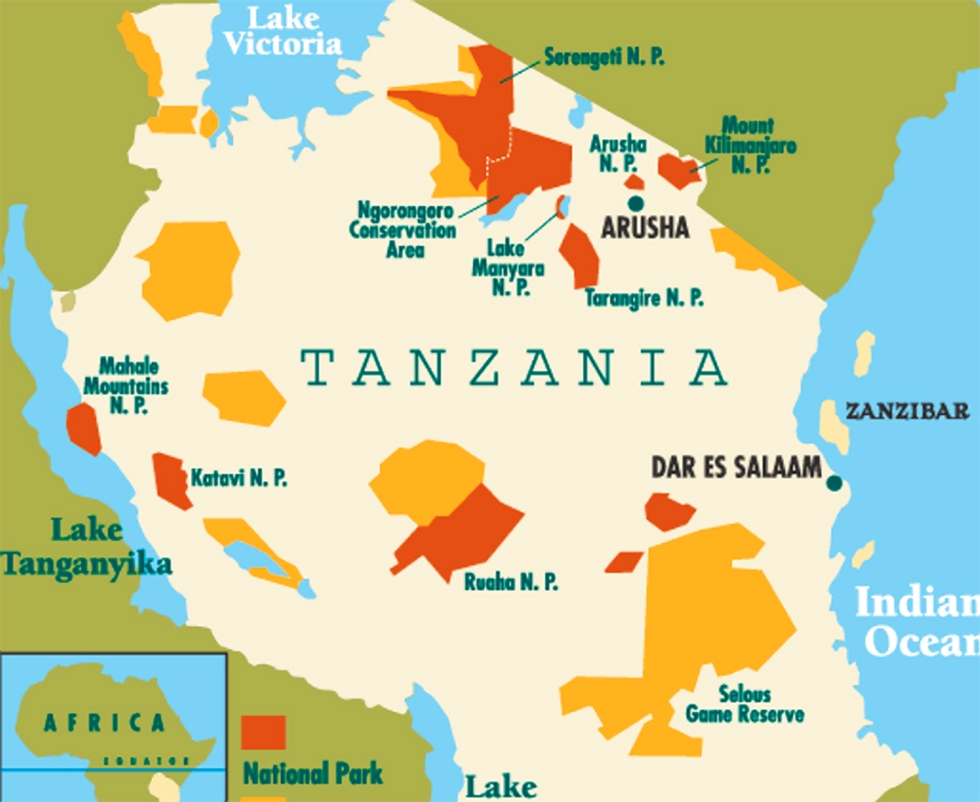
 |
| Imformation for traveling in Tanzania |
Accommodation
|
Map of route: |
|
 |
|
|
|
Map of the Migration
|
|
Traveling in Tanzania |
|
Tanzania has a tropical climate, and temperatures are pretty consistent year-round, averaging between 77°F–86°F (25°C–30°C) in the lowlands and at the coast, and around 59°F–68°F (15°C–20°C) in the highlands. The most significant variables are altitude and rainfall. The period between November and March is often referred to as the "green season." There isn't much rain earlier in March, and when there is precipitation, it's mainly at night. However, the humidity builds, and by later in the month, you should expect some significant rain, which lasts into May. March is the beginning of Tanzania's so-called long rainy season. Many people consider bird watching to be at its best in Tanzania in the long rainy season, so if you're a keen birder, March is a great time to visit. Ideal bird-watching destinations include the Mount Meru area—where you can spot crowned hawk-eagles, cinnamon-chested bee-eaters, Rueppell’s robin-chas, and the very rare Beesley's larks, among other species—and Tarangire National Park, said to offer some of Tanzania's best bird-watching. Here you may spot ashy starlings, yellow-collared lovebirds, and rufous-tailed weavers, among others. As well as watching beautiful birds, you can enjoy the gorgeous landscapes at this time of year. It's known as the green season for a reason, and the increasing rains in March bring the vegetation to life. Moody, cloud-filled skies also often lead to great sunsets. Personal items: Passport, Covid-19 Vaccination Record Card, some dollar bills for tipping, sunglasses, sunscreen, hats, medicines, power bank, power strips or multi-hole sockets (Tanzania voltage 220V, 50hz). Network: All the hotels have WIFI Calling Card: Will be updated soon Camera equipment (for reference) Two cameras (one for spare), mobile phone Lens: Wide (Night, Landscape) Telephoto (Animals, Birds) Regular 28-105 (Humanities, Portraits, street shots, Landscapes) Tripod or monopod Backup battery, memory card, head light Drone: Not allows in private reserves and national reserves. |
|